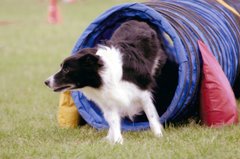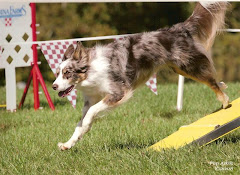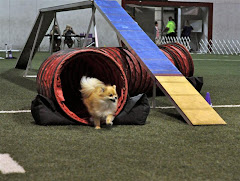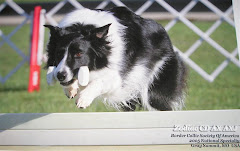The second issue is variable depending on what you are using in your raw diet. Whole bones or large chunks of bones run the risk of breaking teeth and causing GI obstruction or perforation. These issues can range in severity from mild to life threatening.
The final issue with raw diets is food safety. This is the reason we cook our food. It's the reason there is a disclaimer on all restaurant menus about eating raw or undercooked meats. Quite simply the risk of bacterial contamination or even parasite transmission is much greater in food that isn't cooked. While some will argue that wild canids do not eat cooked food, that does not make it safe. Present day dogs have a more domesticated GI tract and we also expect them to live much longer than their wild counterparts. And although the dog itself may be asymptomatic, they can still shed large amounts of dangerous bacteria in their feces and raw food should certainly be avoided if you have children or immunocompromised persons living in your home, or if you do pet therapy of any kinds. This is a social responsibility of pet ownership.
For these reasons I don't think you will find many veterinary professionals who will officially endorse raw diets. I know there are many dogs who do well on them or owners who swear by them. A person must choose what is best for their dog but also be aware of the risks.
Raw eggs as a part of an otherwise balanced diet run the risk of the bacterial contamination part of this discussion. Same reason they tell us not to eat raw cookie dough. The risk may be small but it is present. If your dog will eat a hardboiled or otherwise cooked egg then you eliminate this risk.


.jpg)
.jpg)



.jpg)



No comments:
Post a Comment